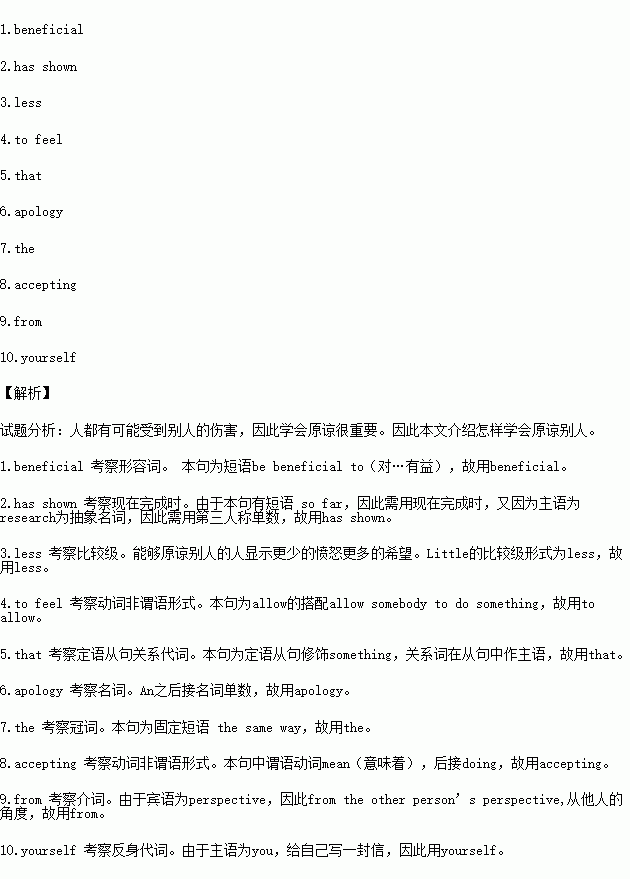题目内容
阅读下面材料,在空白处填入适当的内容(1个单词)或括号内单词的正确形式。
When someone has deeply hurt you, it can be very difficult to let go of your anger. But forgiveness is possible --- and it can be surprisingly 1. (benefit) to your physical and mental health. So far, research 2. (show) that people who forgive can have more energy, better appetite and better sleep. “People who forgive show 3. (little) anger and more hopefulness,” says Dr. Frederic Luskin, who wrote the book Forgive for Good. “So it can help reduce the tiredness out of the immune system and allow people 4. (feel) more energetic.”
So when someone has hurt you, cool down first. Take a couple of breaths and think of something 5. gives you pleasure: a beautiful scene in nature, or someone you love. Don’t wait for an 6. (apologize). “Many times the person who hurt you may never think of apologizing,” says Dr. Luskin. “They may have wanted to hurt you or they just don’t see things in 7. same way. So if you wait for people to say sorry, you could be waiting a very long time.”
Next keep in mind that forgiveness does not necessarily mean 8. (accept) the action of the person who upsets you. Instead, learn to look for the love, beauty and kindness around you. Finally, try to see things 9. the other person’s perspective. You may realize that he or she was acting out of ignorance. To gain perspective, you may want to write a letter to 10. (you) from that person’s point of view.
 能考试期末冲刺卷系列答案
能考试期末冲刺卷系列答案
